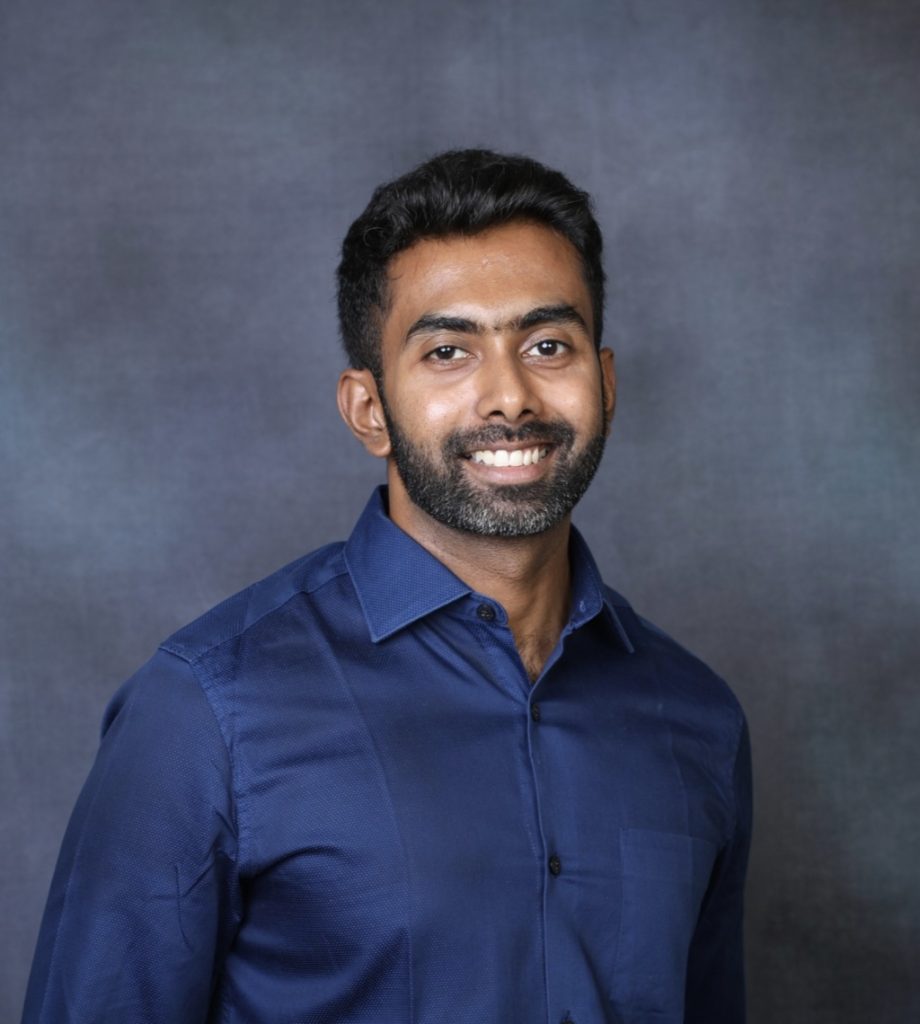Meet Our New Faculty | Dr. Sudheesh R C
June 14, 2023
We extend a warm welcome to Dr. Sudheesh R.C. who joins NLSIU as Assistant Professor, Social Sciences. His work spans the state, land, social policy, agrarian change and theories of development. Previously, he was an Assistant Professor at the School of Development, Azim Premji University, Bangalore.
His research explores the tension between demands for cultivable land and responses of the welfare state.
In this interview, he shares more about his interests and his work.
 Can you tell us more about yourself/your background?
Can you tell us more about yourself/your background?
I have a DPhil in International Development from the University of Oxford, where I received a Clarendon scholarship. I also have an MSc in Social Policy and Development from the London School of Economics and Social Science and an Integrated MA in Development Studies from the Indian Institute of Technology Madras.
Previously, I was an assistant professor at Azim Premji University, where I taught courses on the state, land and qualitative research methods. I have taught courses on theories of development, and history and politics of development, as a teaching assistant at Oxford. I have also worked as a research assistant with the Swiss Agency for Development and Cooperation in New Delhi, where I explored decentralisation models and supported knowledge exchange among state officials and practitioners from 10 countries in South and Southeast Asia.
Land politics, one of my key areas of interest, is deeply embedded in social institutions and structures of power. My interdisciplinary training has allowed me to bring in perspectives from a range of schools of thought to my ethnographic research on the state’s responses to land claims.
What are your main areas of interest and teaching? How did your interest in these areas begin?
My key areas of interest in terms of research and teaching are the state, land, social policy, agrarian change and the very idea of development. I am also fascinated by political ecology, feminist theory and queer studies. Early on in my undergraduate days, I got interested in unpacking how power operates. This eventually led to the research on land politics, the welfare state and how discourses shape the idea of development.
What will you be teaching at NLS?
I will be teaching Sociology I and II. As members of society, all of us try to make incremental bargains with structures of power that constrain us. What are these structures of power and how do they constrain us? What do these bargains look like in reality? How do our identities place us in positions of power or marginalisation? How does power operate on/around us – through social institutions like the state, the family, the school – and through us? These are questions discussed in the two courses that would help us understand ourselves as well as locate our honours subjects in their context.
Your thoughts on starting your teaching journey at NLS?
I look forward to teaching a diverse classroom and facilitating fervent discussions on topics that students would find relevant to their immediate lives.
Which one book / podcast / published piece would you recommend to our students and why?
“The Will to Improve: Governmentality, Development and the Practice of Politics” by Tania Li. It is a fascinating ethnography of the everyday state. Why do state agents keenly work on improving the lives of people? Li complicates the idea of ‘improvement’ and traces its origins to colonialism through a captivating account of the work of state officials in Indonesia.
Could you highlight some of your key projects or publications?
I am working on how the welfare state in Kerala responds to land claims. As part of this work, I trace how landless Adivasi workers were forced to migrate to ginger farms in Karnataka but were replaced by another marginalised community when they started to protest against extreme working conditions. This story can be read in the Journal of Agrarian Change.
To read more of his published work, please visit Sudheesh’s faculty page.

